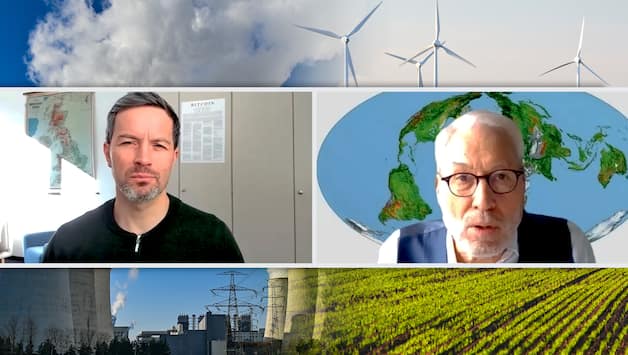Electric cars and heat pumps are crucial building blocks for the energy transition. But if everyone uses them, the power grid collapses. That’s why electricity suppliers should be allowed to throttle the juice from time to time. Companies like Tesla and Viessmann think that’s a really bad idea.
The decision of the installer, who was called to the villa district of Hanover, is clear: he will not install a wall box for car charging in the driveway of a house. When the baffled landlord asked why not, the answer was unequivocal: “If only two or three other people on the street come up with the idea, the power supply will fail if everyone wants to charge their car at once.”
The scene that happened last year has now received its official confirmation: Klaus Müller, President of the Federal Network Agency, which reports to the Green Economics Minister Robert Habeck, warned of exactly this scenario in an interview with the Frankfurter Allgemeine Sunday newspaper and warned of a solution proposed, which has meanwhile led to a storm of protests in the electric car and heat pump industry.
“If a large number of new heat pumps and charging stations continue to be installed, then there will be problems with overloading and local power failures in the distribution network if we don’t act,” says Müller. His proposed solution: from next year, power grid operators should be given the opportunity to temporarily throttle the power supply in the low-voltage distribution grids in order to avoid overloading. Electric cars would then no longer be able to charge their batteries at full power at the home charging station. Heat pumps ran with reduced power. Müller’s solution has already made it into the draft regulation that the network agency has now presented.
However, Müller made his plans without first considering the objections of those affected, in this case the companies concerned. And they are outraged: Last week, the network agency received a letter signed by ten more or less prominent companies. At the top are Tesla and the Volkswagen subsidiary Elli, which specializes in the construction of charging stations. The company Mobility House, also a charging station specialist, is also involved. Industry leader Viessmann co-signed the letter on behalf of the heat pump manufacturer.
The companies sharply criticize Müller and thus his boss Habeck. According to the letter, the interventions planned by the authorities in the power supply endanger “the acceptance and customer satisfaction for key technologies of the energy transition”. The letter writers warn that electricity rationing could become the norm in some places for a long time: “A year-round and permanent reduction” in the power supply is to be feared until weak grids are finally expanded.
“Instead of authorizing distribution network operators to curtail,” solutions must be found that make electricity demand more flexible, they suggest.
In addition to the letter, the car manufacturers also sent their chief lobbyist Hildegard Müller from the Association of German Car Manufacturers: “We are counting on the Federal Network Agency to distance itself from the anti-consumer idea of centrally controlled power throttling,” she says. Should an operator actually throttle the power supply of e-car charging stations and heat pumps in sections of its distribution network in a centrally controlled manner, then it must be obliged to technically upgrade the affected parts of the network within twelve months, demands the industry and proposes threatening fines, if an electricity supplier does not upgrade its networks accordingly within this period.
However, there is another way. For example, a pilot project by Elli and the East German electricity supplier Mitnetz shows how existing networks can be better utilized with clever charging. Ultimately, the solution is to create financial incentives to charge when there is enough electricity. The message that Elli definitely wants to get across is: “E-mobility does not endanger the networks, it offers huge potential.” However, the fact that coordinated charging only works for electric car drivers who may be able to freely choose their charging times is another matter Sheet. A heat pump that has to run when it’s cold outside cannot be dispensed with in a timetable.
The Federal Association of Heat Pumps therefore provides support for its members. “The industry is currently making massive advance payments. The companies are investing in the expansion of production capacities, in new plants and new jobs,” says Martin Sabel, managing director of the association. “Now it’s politics’ turn: The industry needs reliable framework conditions and industrial policy support for the further expansion of capacities.”
At Netzagentur boss Müller and his boss Robert Habeck, however, these demands only fall on half-open ears. This can be checked further, but his authority is currently “not aware of any feasible models” that control the charging of electric cars and the operation of heat pumps in such a way that the power grids cannot be overloaded. Network agency boss Müller will therefore remain with his throttle draft for the time being. The installer from Hanover was right. And the homeowner has now bought a new car – one with an internal combustion engine.
The article “Electricity providers in fear of grid collapse – because of e-cars and heat pumps” comes from WirtschaftsKurier.








